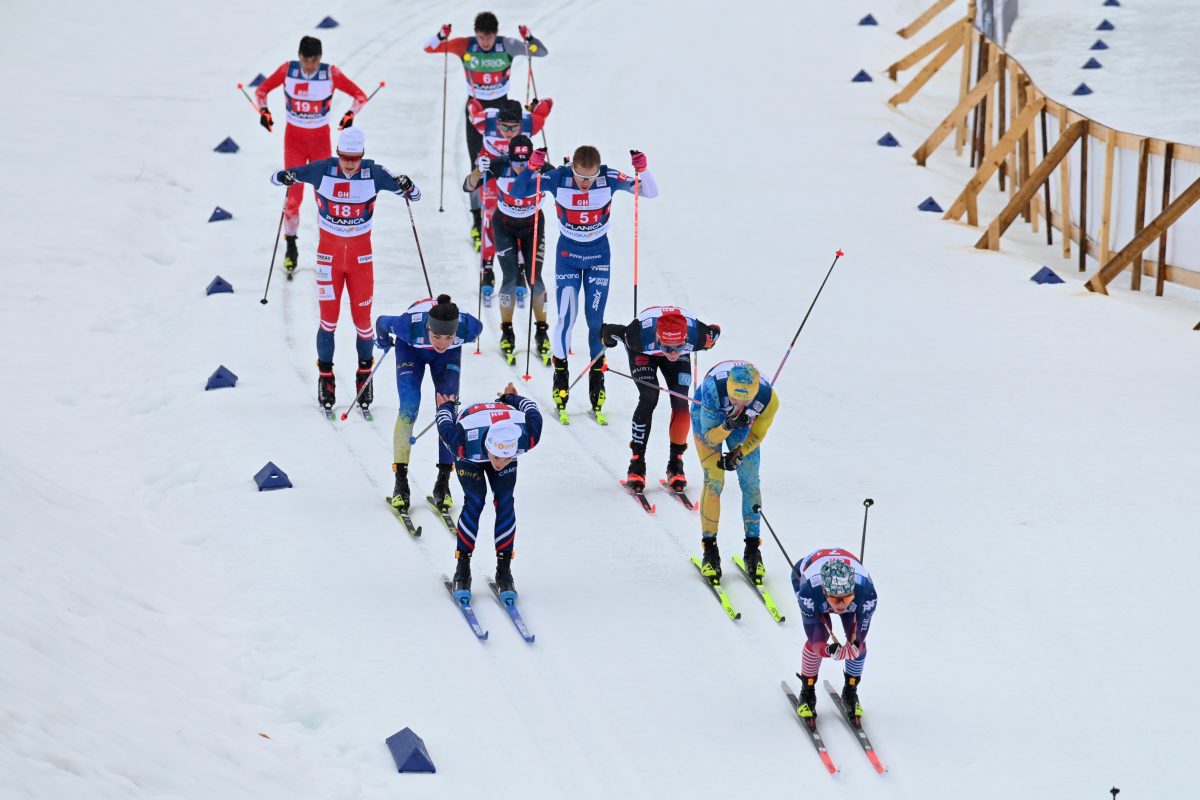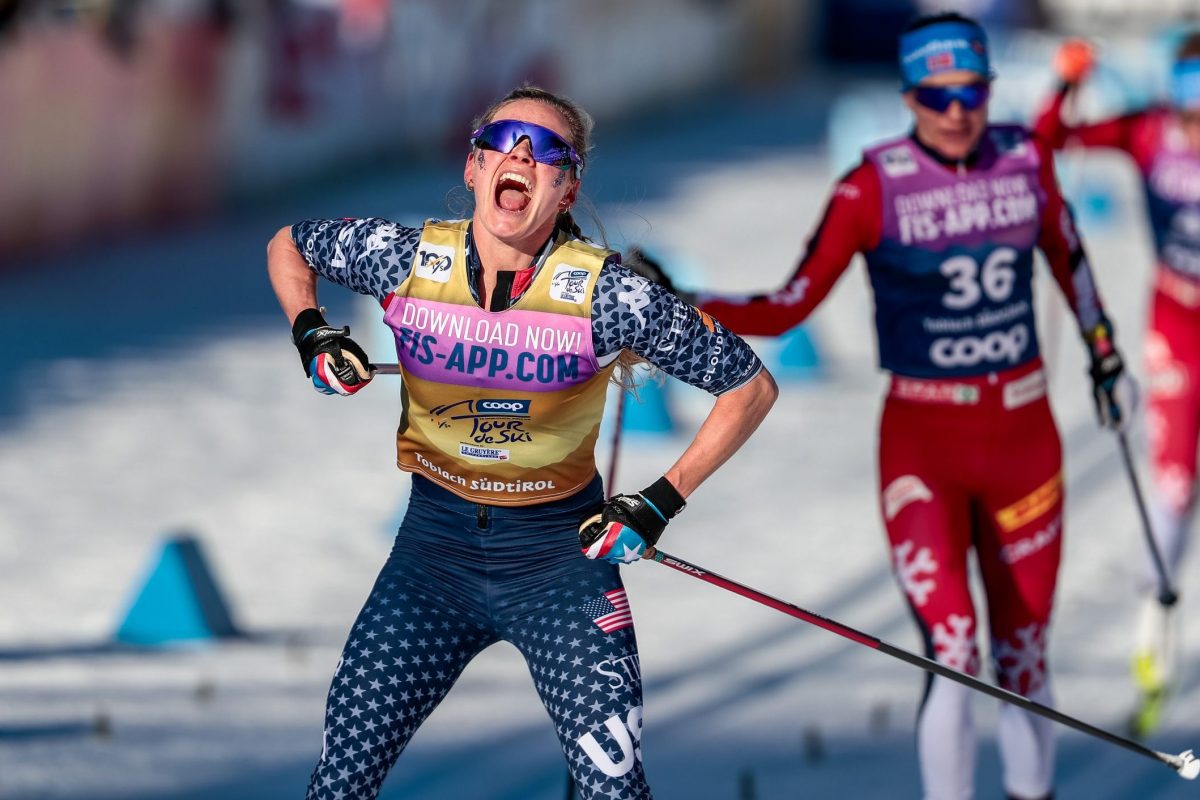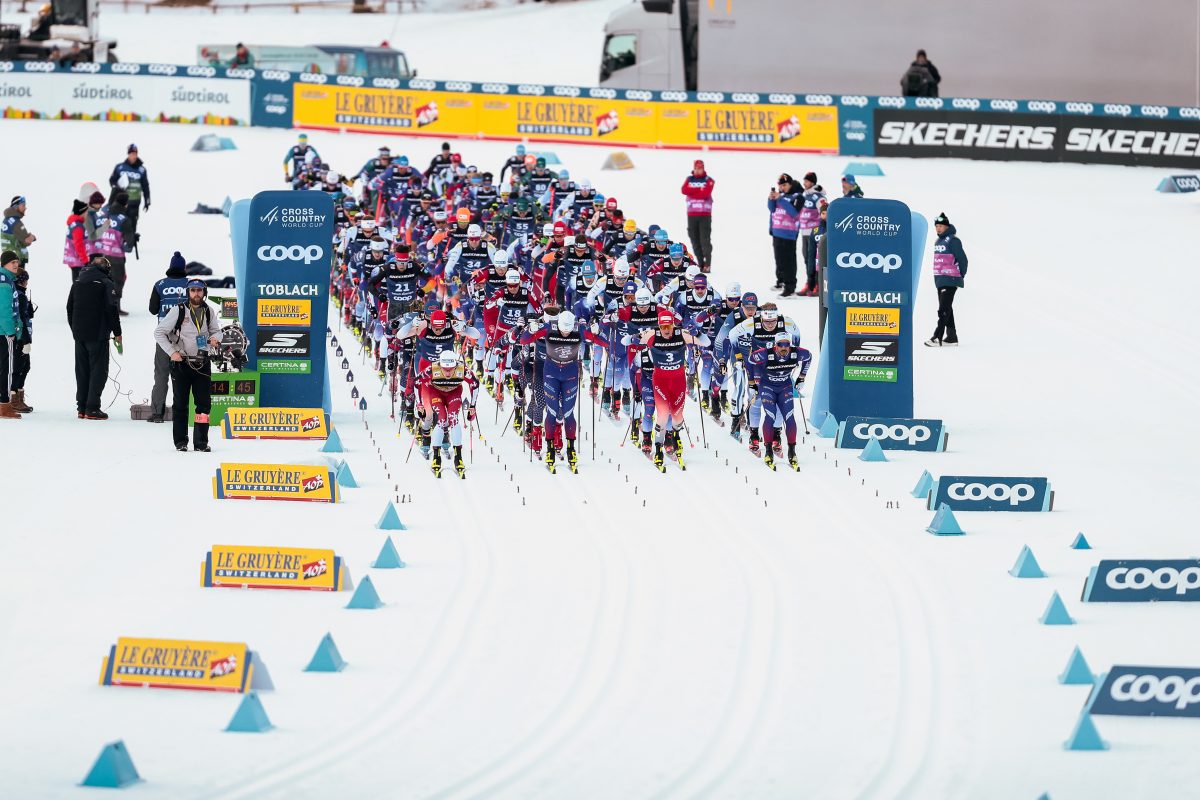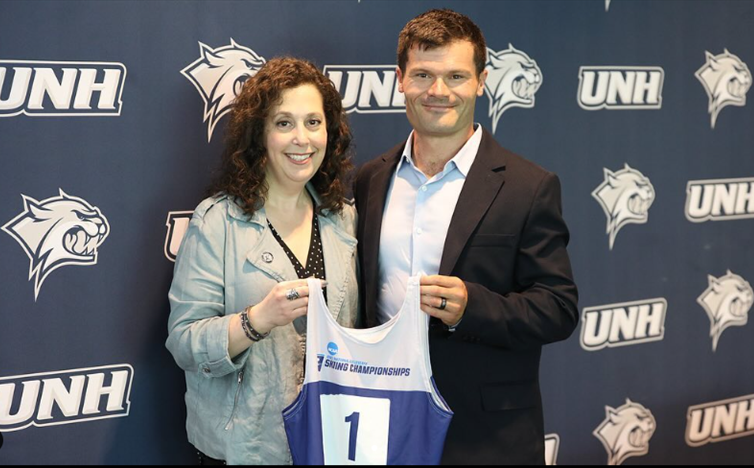
Last May, FasterSkier wrote about the retirement of University of New Hampshire’s (UNH) legendary ski coach Cory Schwartz, who had been with the University for 42 years. This summer, UNH named Shane MacDowell— the team’s former assistant coach— as Schwartz’s replacement. In Part one of our interview with MacDowell we discussed the lessons learned from his mentors, and the challenges of following in the footsteps of a beloved legend. In Part II we discuss meeting high expectations, maintaining a great team dynamic, and how European athletes affect collegiate skiing.
This interview has been edited for brevity and clarity.
FasterSkier: At your introductory press conference, you mentioned being a national contender in the future. Is it difficult to manage those kinds of expectations among alumni, versus just presenting the fact that you have a successful program with happy, healthy students who perform at their best and everything is going well, and everyone is happy?
Shane MacDowell: So that question is a little hard for me to answer, because the past three years— I came into the program at a pretty good time— we’ve had three pretty strong years where we’ve qualified five or six Nordic athletes and five or six Alpine athletes every year that I’ve been here. So, I can’t say the alumni have really been breathing down our necks. They obviously want us to be the best, but I can’t say they’ve really been disappointed with how we’ve been doing so it’s hard to say they’re too demanding. But I’m sure if the program takes a turn and starts to not be very successful, I will probably hear some things about it.
FasterSkier: One trait that really stands out about UNH is that the first thing that alumni of the ski program mention was the great team dynamic that had been created over the years. Coming into the position, how do you continue that team dynamic? What do you put in place to make sure that the team dynamic continues?
Shane MacDowell: I think there are a couple of things. I mentioned before with the dynamic of Alpine and Nordic. It’s important that we have engagements where the team gets together as a whole, like one of the first things that we do when the school year starts is we get the whole team together for a cookout. The returning athletes get to know the incoming athletes, both on Alpine and Nordic, it creates a pretty good bond. But I think a lot of it starts with the coaching staff when that recruiting process starts. We as a staff value how close our team is because it creates an awesome experience for our student athletes on the team. We put a lot of value into who the student athlete is that’s coming into the program and how they’re going to fit in. It’s not just about results and are you fast? When we have a prospective student athlete come to campus for visits, sometimes we’ll have them stay for a night or two, go to classes and stick with a couple teammates in the dorms and that way not only do they get to see what the school is like and what the team is like, and if it’s a good fit for them, we get to see if it’s a very good fit for the team. We don’t make the decision of, is this athlete good for our team just on the coach’s shoulders, but we put it on our current team and athletes’ shoulders as well. After new prospects leave, we ask the team their thoughts and if they think the recruit would be a good fit? I think that helps build that cohesiveness within the team and keeps fostering what I consider to be like a second family. That’s how close our athletes are and how close the team is.
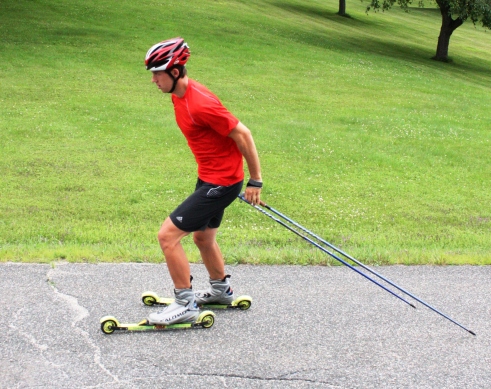
FasterSkier: During that process do you ever find yourself in the situation where we have this individual who is a really, really strong athlete, but you don’t think they’re going to be a good fit for you, so you don’t pursue them?
Shane MacDowell: I would say that scenario is very rare. I’d say we’re pretty lucky in the sport of skiing that it’s usually a pretty close community to begin with and it’s a lot of like-minded people that tend to get along. They’re certainly out there … the athletes that are difficult and you don’t want to deal with. But I would say they are few and far between. So, it’s usually pretty easy. That statement is probably going to come back and bite me! You know, I would say for the most part skiers are pretty cool people that are nice to be around. On the majority, that decision is usually pretty easy.
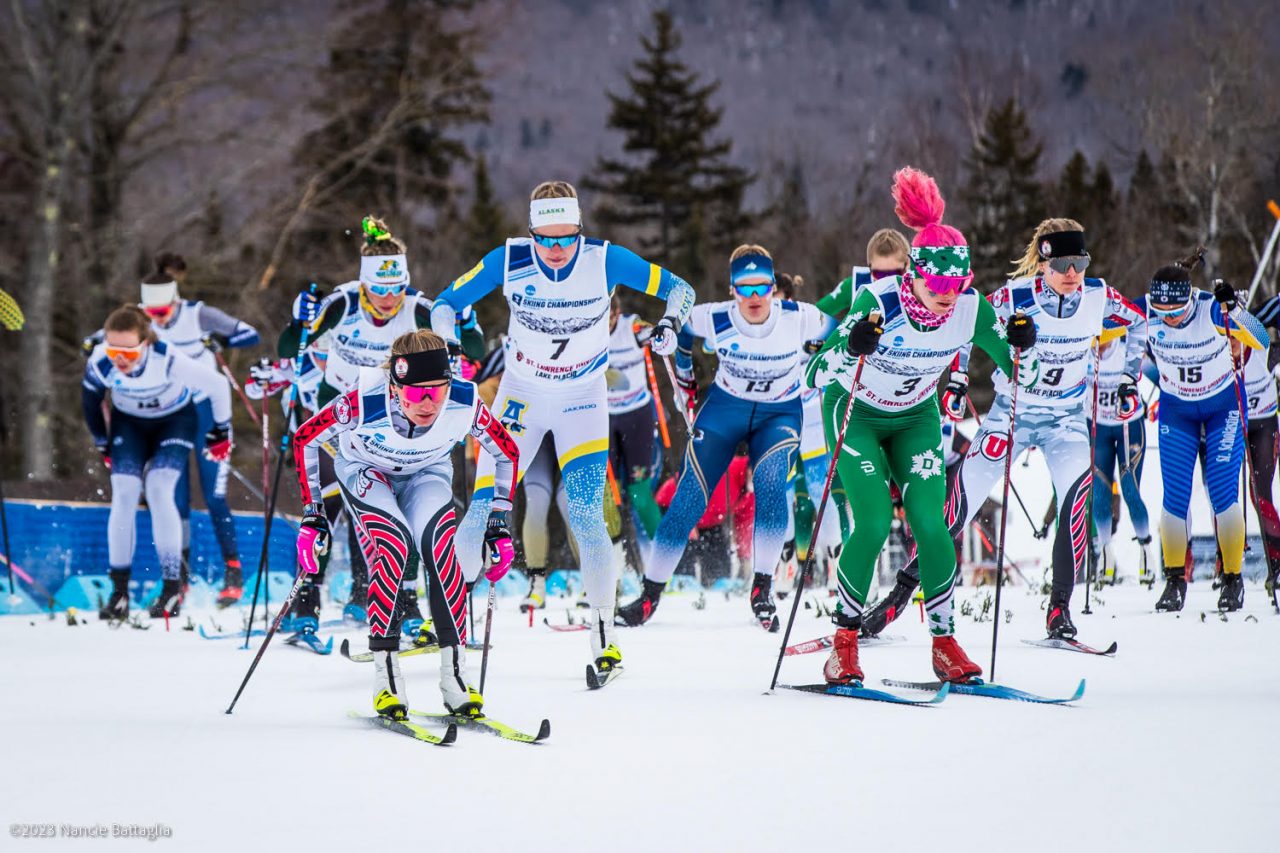
FasterSkier: Let me tie that back then to something that we had discussed earlier. You’ve had a few European athletes at UNH over the years. Are you actively recruiting European athletes? How do they fit in with that whole team building and team mentality aspect?
Shane MacDowell: What I have found is that when they come here and, I can’t speak for every single European athlete that comes here, but for example, we had a woman from Sweden a few years ago, she found our whole approach and our whole team dynamic to be very refreshing because skiing for her back home wasn’t fun. It was more of a job, and the way she put it was that they didn’t really get along, you were out to beat the next person and it was not a friendship. We race hard, and you want to beat the person next to you, but at the end of the day—even the whole eastern circuit is super close— they also see those competitors as their friends. Over there they’re competing to be on the national team, whereas here, they’re, yes, they’re trying to make NCAA’s and perform the best that they can, but there’s a little bit … more camaraderie. That’s just my view of what I have heard from the athletes I’ve had. Doesn’t mean that’s the rule by any means.
FasterSkier: Do you have any kind of recruiting network or pipeline in the Scandinavian countries, or is it mostly the athletes who find out about UNH coming to you to pursue a career here?
Shane MacDowell: It’s a little bit of both. There is a little bit of a network now with alumni that we’ve had, that will reach out to athletes for us and help in that regard. But then, we also get emails from athletes out of nowhere that are just trying to find a team to be a part of because they want to come to the States and have noticed that the U.S. has had some pretty good success in skiing and want to either try something new or tap into the success that we’ve had. They’re obviously emailing other schools as well, but they reach out and then we start that whole process.
FasterSkier: You have a pretty unique history with your personal skiing experience between coaching at UNH, your time in the Midwest, and then you spent time in Sun Valley too. When you put all these experiences together, can you put your finger on any type of cultural differences in the ski communities between these regions?

Shane MacDowell: There are, certainly cultural differences … I can’t really put my finger on it exactly, but there’s definitely a different vibe in New England as opposed to the West or even the Midwest. In the East everything’s so close, so everybody knows each other. The racing vibe in the East is just so close knit, and to me, that just makes it so fun. The Midwest is a little bit different in the sense that it’s a little more spread out, but there’s just such a passion for skiing. You could see it at the World Cup this past year … how packed that place was, and you know they’ll do anything for skiing. And then the West, there’s certainly that passion and they’re definitely out there working just as hard as everybody. It’s just a little bit more spread out, which I think you can see within the athletes and the programs, that they’re close, but they don’t have that same interaction that that you necessarily get in the East. So, it’s a different feel at races. You know in the East you can have races with 400 or 500 athletes in them, whereas in the West you just don’t see that, so it’s just a different feeling. I would say, the passion for the sport is the same everywhere though.
FasterSkier: The geographic differences, the physical location differences is what you’re talking about with closeness, right?
Shane MacDowell: Exactly. Take Sun Valley. You drive five, six, seven hours to get to races sometimes. So, the chances of collaborating with another program and getting together and having those training opportunities or race opportunities are a little bit further and fewer between.
FasterSkier: When you talk about UNH being a national contender do you feel a little bit like an underdog competing for national recognition against a school like NMU or Utah for elite national status?
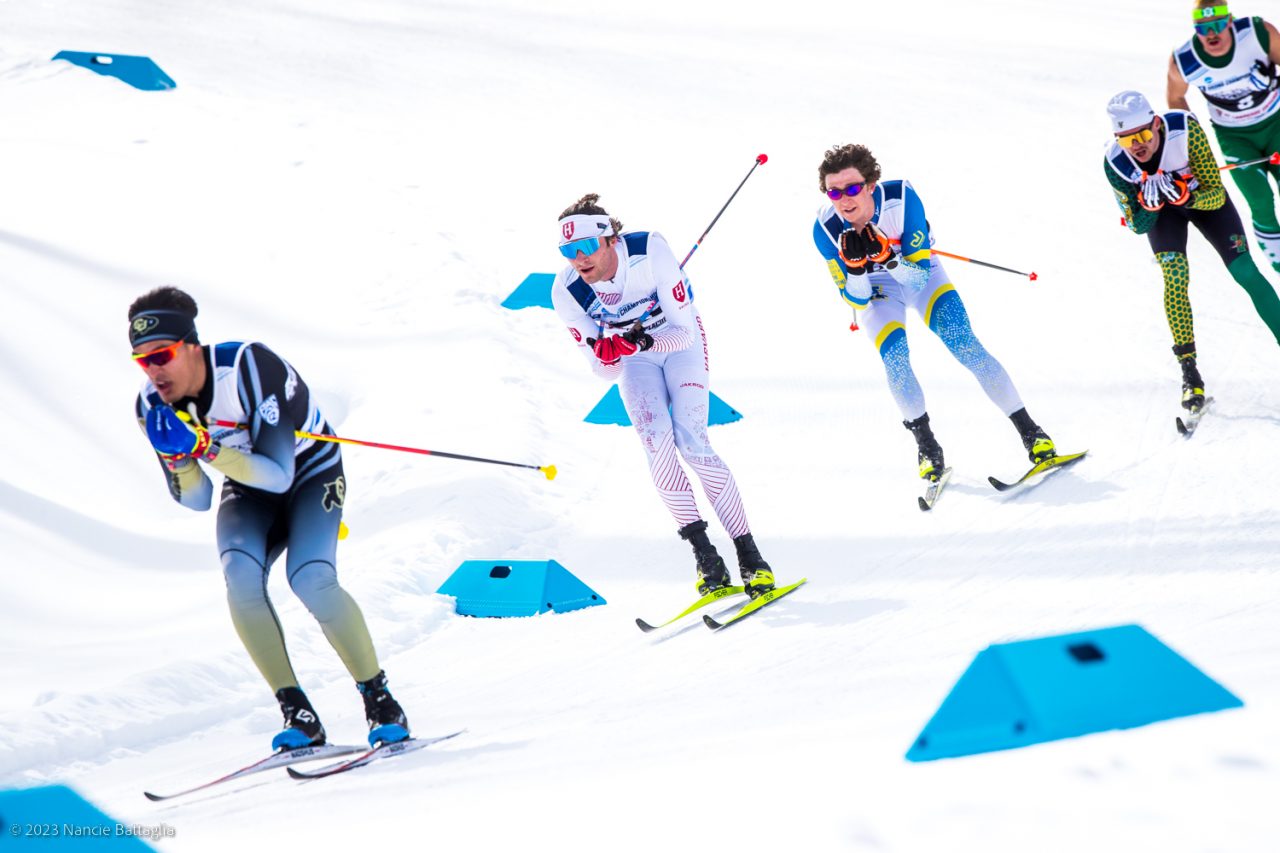
Shane MacDowell: A little bit. But when it comes to college skiing, I think everybody has their crosses to bear. We have certain aspects that we need to deal with that other programs don’t need to, where those programs like NMU and Utah have their own set of problems that they need to deal with. So, some programs, yes, they are set up a little bit better to succeed and to entice athletes. But at the same time everybody has their challenges. I think it’s finding how to overcome those challenges that makes the program strong.
FasterSkier: Do you set out any type of team goals as you enter the race season?
Shane MacDowell: Loosely. We definitely have goals. I have goals in my head that I keep to myself, but we also have team goals. As you know, a couple of years ago as a team, we finished 6th at NCAAs, which is the best that the team had finished in a very, very long time. Having the goal of finishing higher than that is certainly out there and that’s what I mean by being a national contender. I strongly believe that with the support of our alumni, and continuing support of the athletic program, we can certainly compete with the best of them. We have the facilities and the training and the athletes to do so. We just have to keep working towards it.

FasterSkier: So, is something like top five in the NCAAs a stated team goal that that you talked about with skiers for this winter?
Shane MacDowell: I don’t think it has been a stated goal yet. It could certainly get there but were not just focused on results based goals. We also want our athletes to be the best that they can be in the classroom. I can’t even count how many years running it’s been, but our men and women, both Alpine and Nordic, have had the highest GPAs in the entire athletic department for the past five, six, seven years, so having that is pretty awesome. Having them succeed in the classroom and perform is great. So, it’s the whole picture, not just how are we doing it instantly.
FasterSkier: Is NIL (name, image, and likeness) a thing in the ski program?
Shane MacDowell: Not at the moment.
FasterSkier: You have a bachelor’s in English journalism, which isn’t a common background for a head ski coach. Is there anything from your journalism background that you draw on when you’re coaching to say, inspire your athletes or bring to their attention that might be a little unique to you?
Shane MacDowell: It has helped me to be able to almost interview them I guess you could say, and get certain things out of them to help me understand how their mind is working to help understand how they’ve gotten where they are and possibly why they’re in position they’re in at the moment. So being able to just kind of get to the heart of the athlete by a little bit of prodding and questioning, but I would also say this year and leading up to this year with UNH, it certainly helped with those appeals to our alumni.
FasterSkier: Speaking of regional differences, for readers who live outside of the Northeast can you explain the use of the term Carnival for ski meets? Most people outside of the Northeast probably aren’t familiar with that term in that context?
Shane MacDowell: It’s pretty unique to the Northeast because it used to be an actual carnival to my understanding. So, like when Cory was in school and before then, each school had their winter Carnival, so it was like a big thing on campus where, not only were their ski races, but it was a whole campus thing. So that’s where that came from. There were other events going on within school at the same time. It was all centered around that weekend. So even when I was racing, there was more of an historic structure that the Carnival circuit followed. There were schools that hosted every single year and then there were two Carnivals a year that would rotate. Now everything rotates. So, I think that was a little bit of a carryover from that time where say Dartmouth had their winter Carnival on this particular weekend every year and Middlebury had theirs on this weekend, and part of the Carnival were ski races.
FasterSkier: Cory was there for 42 years. Can you imagine being at UNH for 42 years?
Shane MacDowell: Oh man…
FasterSkier: How old are you?
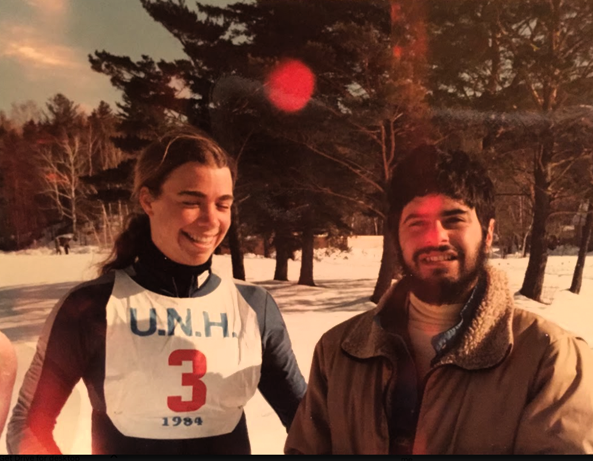
Shane MacDowell: I am going to be 37 in August. So, I’ll be quite old if I last 42 years. So probably not, but as long as I can. Everybody knows I’m pretty excited to take on the job and be back at my alma mater and hoping to do our current team and all the alumni right and keep the program moving in the right direction.
FasterSkier: Well, best of luck to you, Shane and thank you for taking the time to speak with FasterSkier.
FasterSkier thanks Shane MacDowell for taking the time from his busy schedule to speak with us.

